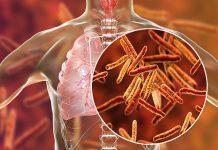Are you in the habit of sleeping for less than seven hours daily? Do you struggle to have good quality sleep daily? If your answer is in the affirmative, then you need to do something fast, as scientists have recently validated it that people who sleep for less than seven hours per day may have increased risk of cardiovascular disease (CVD) and coronary heart disease.
The first study, published in the journal Experimental found that people who sleep fewer than seven hours per night have lower blood levels of three physiological regulators, or microRNAs, which influence gene expression and play a key role in maintaining vascular health.

The other findings published in the Journal of the American College of Cardiology, suggested that poor quality sleep increases the risk of atherosclerosis—plaque build-up in the arteries throughout the body.
Quality of sleep was defined by how often a person woke during the night, and the frequency of movements during the sleep which reflect the sleep phases.
To arrive at their findings for the first study, the researchers collected blood samples from a small group of healthy men and women, age 44 to 62, who had filled out questionnaires about their sleep habits. They explained that while half of the participants slept seven to 8.5 hours nightly, the other half slept five to 6.8 hours every night.
Expression of nine microRNAs previously associated with inflammation, immune function or vascular health, were measured by the scientists, and they found that with insufficient sleep had 40 to 60 per cent lower circulating levels of miR-125A, miR-126, and miR-146a than those who slept enough.
According to the team lead, Christopher DeSouza, Professor at University of Colorado in the US, “This study proposes a new potential mechanism through which sleep influences heart health and overall physiology.
“Why seven or eight hours seems to be the magic number is unclear. However, it is plausible that people need at least seven hours of sleep per night to maintain levels of important physiological regulators, such as microRNAs.
“They are like cellular brakes, so if beneficial microRNAs are lacking that can have a big impact on the health of the cell,” DeSouza said.
Results of the study, reported on thehealthsite suggested that microRNAs in blood could be used as a marker of cardiovascular disease in people with insufficient sleep.
“Cardiovascular disease is a major global problem, and we are preventing and treating it using several approaches, including pharmaceuticals, physical activity and diet.
In the words of the lead author for the study in the Journal of the American College of Cardiology, José M. Ordovás, Ph.D., researcher at the Centro Nacional de Investigaciones Cardiovasculares Carlos III (CNIC), the findings indicated that healthcare givers need to include sleep as one of the weapons use to fight heart disease—“a factor we are compromising every day”.
“This is the first study to show that objectively measured sleep is independently associated with atherosclerosis throughout the body, not just in the heart.”
Explaining their research results, Ordovás, said when traditional risk factors for heart disease were considered, participants who slept less than six hours were 27 percent more likely to have atherosclerosis throughout the body compared with those who slept seven to eight hours.
“Similarly, those who had a poor quality of sleep were 34 percent more likely to have atherosclerosis compared with those who had good quality of sleep”, he stated.












